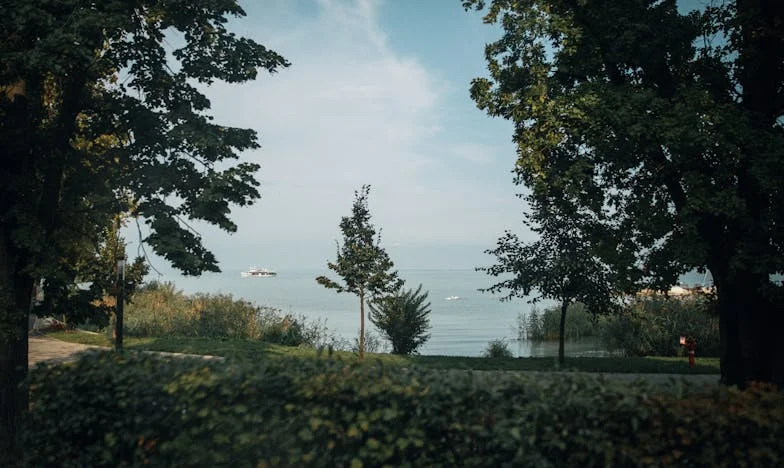The House That Broke Us: A Father’s Battle With Betrayal and Forgiveness
“Dad, I messed up. I’m so sorry.”
Ryan’s voice trembled over the phone, and the words hit me like a sledgehammer. I had just finished my shift at the auto shop in Dayton, Ohio, and was looking forward to a quiet evening. But as I listened, hand shaking, my world collapsed.
“What do you mean, you messed up?” I demanded, heat rising in my chest. My wife, Linda, watched from the kitchen, concern etched on her face.
“I took out a loan. I thought I could pay it back, but… I can’t. They’re foreclosing. The house is… it’s gone, Dad.”
The walls seemed to close in. For a moment, I couldn’t breathe. Our home—the one I’d worked two jobs to afford, the one we’d raised Ryan and his little sister Emily in—gone. Just like that. Because my son, my own flesh and blood, had made a terrible decision.
Linda took the phone as I slumped into a chair, my mind racing with memories: Ryan’s first steps on the porch, summer barbecues, Christmas mornings around the fireplace. All slipping away, replaced by a cold, unfamiliar emptiness.
That night, we didn’t sleep. Linda tried to comfort me, but I just stared at the ceiling, replaying Ryan’s words. I felt betrayed, humiliated, and—more than anything—furious. How could he do this to us? Didn’t he know how hard I’d worked, how much I’d sacrificed?
The next day, the bank’s letter arrived. It was real. We had thirty days to leave.
I stopped talking to Ryan. When he came by the apartment we’d rented—a cramped place on the wrong side of town—I refused to answer the door. Linda pleaded with me. “He’s your son, Mark. He needs you.”
“He’s the reason we’re here,” I snapped. “Let him figure it out.”
But Linda didn’t give up. One night, after another silent dinner, she put her hand on mine. “You’re angry, I get that. But haven’t we always taught our kids that family sticks together, no matter what?”
I wanted to yell, to tell her she didn’t understand. But in the silence, I saw the pain in her eyes. She’d lost her home too. We all had.
A week later, Emily called, crying. “Dad, Ryan’s not okay. He’s talking about just… disappearing. I’m scared.”
Something broke inside me. All my anger, my pride—it was nothing compared to the fear of losing my son for good. The next morning, I drove to the rundown motel Ryan was living in and pounded on the door.
He opened it, eyes red, face gaunt. “Dad?” he whispered, shrinking back.
“I’m here,” I said, my voice cracking. “We need to talk.”
We sat on the edge of the unmade bed. For a long time, neither of us spoke. Finally, I said, “Why, Ryan? Why didn’t you come to me?”
He started to sob. “I just wanted to help. I lost my job, I was scared… I thought if I borrowed the money, I could fix things before you ever found out. But it got out of control. I’m sorry, Dad. I’m so sorry.”
As I watched my son—my grown son—cry like a little boy, the anger that had felt so righteous suddenly seemed pointless. He was still my child. He’d screwed up, yes, but hadn’t I made mistakes too? Hadn’t I once been a stubborn, scared young man, thinking I could fix everything on my own?
I put my arm around him. “We’ll figure it out. But you need help. And you need to own up to what you’ve done.”
He nodded through his tears. “I will, Dad. I promise.”
It wasn’t easy. Ryan entered a support group for his gambling problem. Linda and I went to counseling. Emily moved in with us, helping out however she could. We learned to share small joys—a home-cooked meal, a joke, a walk in the park. It wasn’t the house we’d lost, but it was something real.
Neighbors who’d once admired us now barely nodded hello. Some friends drifted away. I felt isolated, embarrassed. There were days when I wanted to scream, to run, to blame Ryan all over again. But each time, I remembered his face in that motel room, and the look in Linda’s eyes when she talked about forgiveness.
One night, as I watched Ryan help Emily with her college applications, I realized something. Home wasn’t the house on Maple Avenue. It was the people sitting around this rickety table in our tiny apartment—the family who’d survived, who’d chosen to forgive.
I still miss our old life. But I’m learning, every day, that love is stronger than pride, and forgiveness is harder—and more necessary—than I ever imagined.
So here’s my question for you: When someone you love hurts you deeply, do you hold onto the pain, or find a way to let go? What would you have done if you were me?
